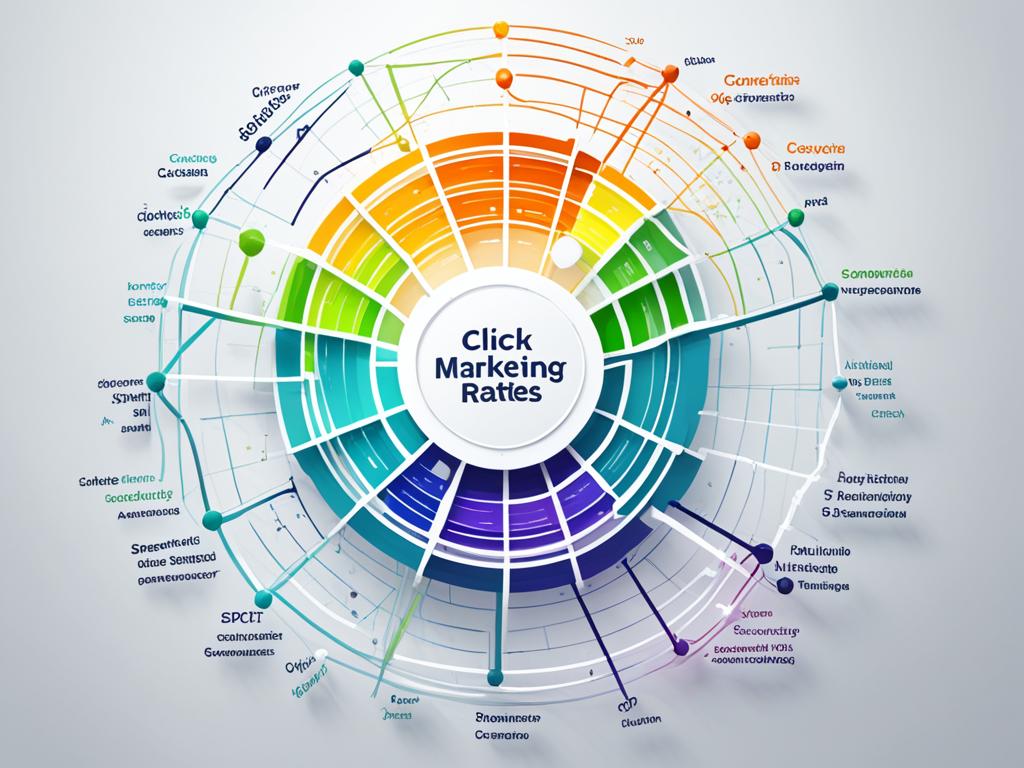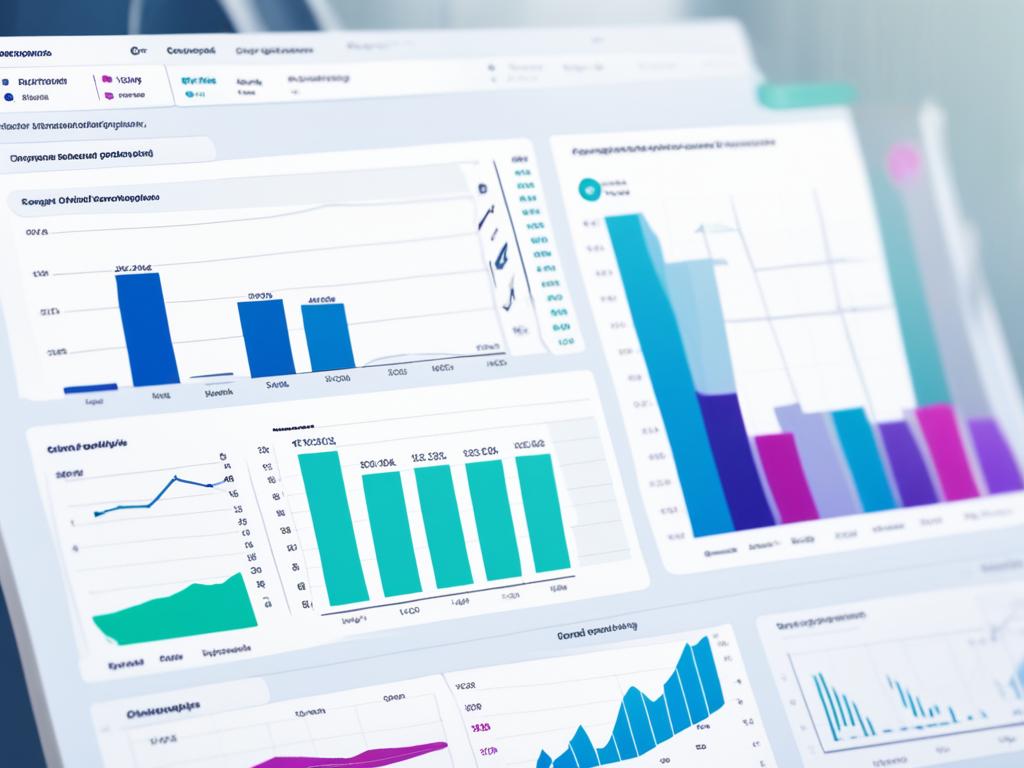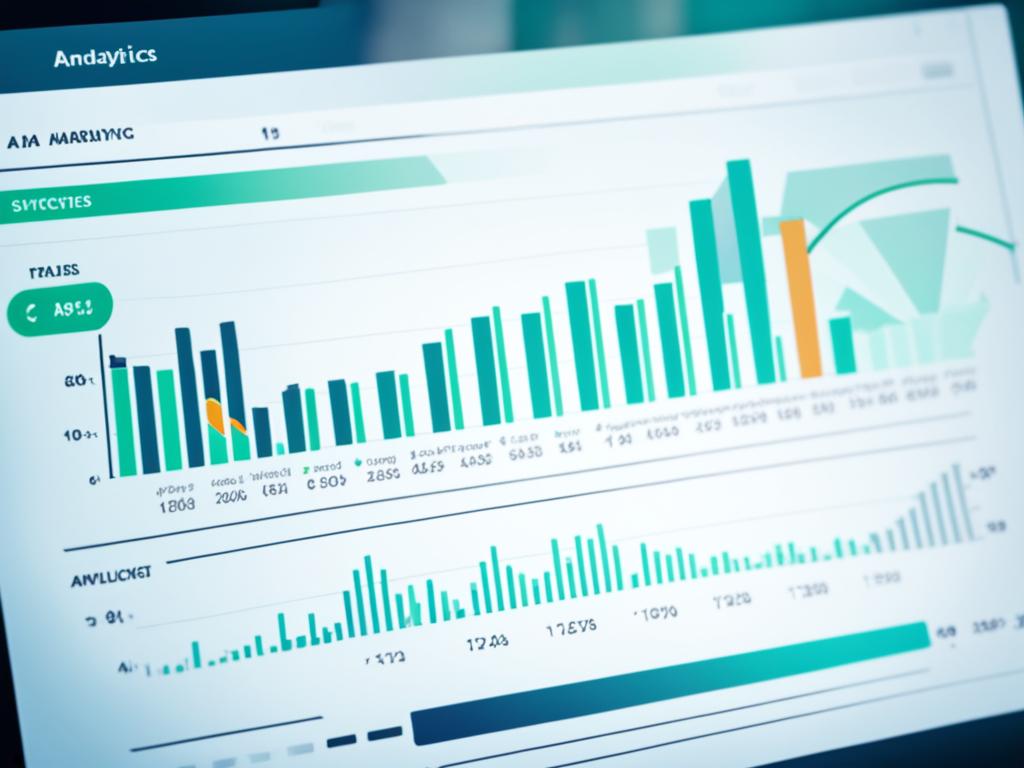Do you wonder why your affiliate marketing doesn’t hit its goals, even with hard work? The answer might be in your success metrics. AI-supported analytics change how marketers track and boost their efforts. They offer unmatched precision and insight.
The world of affiliate marketingperformance tracking in affiliate marketing are out. AI-supported analytics bring deep, accurate affiliate program data analysis. This empowers marketers to decide smarter, using data.
Why is this change groundbreaking? AI does more than just process data. It spots trends and forecasts futures more accurately than humans. With AI’s power, marketers can tweak strategies on the fly. This way, campaigns always perform their best.
Key Takeaways
- AI-supported analytics provide deeper insights and more precise measurement of affiliate marketing success.
- Traditional methods of data analysis are becoming obsolete in favor of advanced AI tools.
- Performance tracking in affiliate marketing is significantly enhanced through AI.
- Marketers can make smarter, data-driven decisions with AI-powered tools.
- Real-time monitoring and optimization are facilitated by AI-enabled analytics.
Introduction to AI-Supported Analytics in Affiliate Marketing
Delving into artificial intelligence (AI) in affiliate marketing starts with its basics. AI uses complex algorithms and data processing to offer insights. These insights help create smarter marketing strategies.
Understanding the Basics of AI in Marketing
AI in affiliate marketing uses machine learning, data mining, and pattern recognition to find unique trends. Machine learning lets systems improve with experience. This boosts your chance to predict what consumers will do next. Data mining looks at big datasets to find important patterns and links.
What Makes AI Analytics Essential for Affiliates
AI analytics are key for success in affiliate marketing’s competitive field. They allow affiliates to grow by providing accurate insights. This leads to better targeting and optimization. AI helps make better decisions by showing how campaigns are doing and suggesting quick strategy changes.
| AI Analytics Benefits | Description |
|---|---|
| Machine Learning | Continuously improves through data analysis, refining marketing strategies over time for better results. |
| Data Mining | Discovers hidden patterns and insights within large datasets, offering deeper understanding of consumer behavior. |
| Pattern Recognition | Identifies trends and anomalies in real-time, aiding in the swift adaptation of marketing tactics. |
By using AI in affiliate marketing, marketers boost their analysis power. They get ready to deliver more value and outperform competitors. The future of AI analytics in affiliate marketing is set to bring even more advancements. It will change how we measure and enhance performance.
Key Metrics for Measuring Success in Affiliate Marketing
Knowing the main metrics helps us track how well our affiliate marketing works. By using AI, we can get a deeper understanding of success metrics in affiliate marketing. This helps us make our strategy better and get better results. We should keep an eye on three important metrics: conversion rates, click-through rates (CTR), and return on investment (ROI).

Conversion Rates
Conversion rates are key in figuring out how effective affiliate marketing is. They show the percent of users who take action after clicking an affiliate link. Using AI, we can study different things that affect conversions. This way, we can make changes to increase this rate.
Click-through Rates (CTR)
CTR shows how often people click on affiliate links compared to how often they see them. It gives us an idea of how well our content and ad placements are working. AI tools help spot trends. This means we can make changes for better results.
Return on Investment (ROI)
ROI looks at the money made from affiliate marketing campaigns against the costs. It’s crucial for knowing how profitable your efforts are. With AI, we can be more accurate in calculating ROI. This lets us make smarter decisions and better our marketing strategy.
The Role of AI in Enhancing Affiliate Marketing Strategies
In affiliate marketing, AI is changing the game. It optimizes campaigns through data analysis, predictive insights, and tracking performance live.
Data Collection and Analysis
AI’s power lies in handling huge data fast. It uses complex algorithms to refine and understand affiliate data. This reveals what customers like and what’s trending. Marketers can use this knowledge to make smarter choices.
Predictive Analytics for Campaign Optimization
AI doesn’t just look at what happened or what’s happening. It also predicts what will happen next. With predictive analytics, marketers can see future trends. This helps them prep their strategies to hit the mark better.
Real-Time Performance Tracking
In affiliate marketing’s quick world, live updates are key. AI lets marketers watch their campaign’s performance as it unfolds. This means they can quickly adjust to keep their strategies on point.

AI does more than track performance. It uses data to fine-tune strategies to meet market changes. By using AI, marketers keep their strategies flexible, informed, and consistently on target.
Top AI Analytics Tools for Affiliate Marketing
In today’s fast-moving digital world, using advanced analytics tools for affiliate marketing is crucial. Let’s look at some leading AI tools that can boost your affiliate program’s success.
Google Analytics with AI Enhancements
Google Analytics is a big name that now has AI powers to change affiliate marketing. Its AI options give deep insights into what customers do and how campaigns perform.
- Advanced Data Analysis: Easily look into big data to find hidden patterns.
- Predictive Metrics: Predict what might happen to make better future campaigns.
- Intelligent Suggestions: Receive smart tips to improve your affiliate marketing efforts.
With these AI upgrades, you can keep up with live data. This makes it a top tool for affiliate marketing analysis.
IBM Watson for Marketing Insights
IBM Watson offers AI analytics for affiliate marketing, bringing deep insights and data you can act on. This can greatly improve marketing tactics.
Key features include:
- Natural Language Processing (NLP): Figure out customer feelings to adjust affiliate strategies.
- Robust Data Integration: Easily merge with current systems for a complete performance view.
- Real-time Analytics: Watch and tweak campaigns as they happen for the best outcomes.
IBM Watson changes the game with its advanced features for affiliate marketing. It helps marketers make choices based on solid data.
Challenges in Measuring Affiliate Marketing Effectiveness
Using AI analytics in affiliate marketing is great, but it comes with big challenges. These obstacles often stand in the way of measuring how well marketing works. Let’s look at some major issues faced by affiliate marketers.
Data Privacy Concerns
Data privacy is a big hurdle when it comes to measuring effectiveness in affiliate marketing. Laws like the GDPR and CCPA make it tough to collect and analyze user data. Affiliates have to be very careful not to break these laws. This helps them avoid big fines and keep the trust of their customers. It’s key to use data ethically while still getting useful insights.
Integration with Existing Systems
Another problem is making AI analytics tools work with old systems. A lot of affiliate programs use outdated platforms. This makes it hard to blend data smoothly. Different data formats and the need for tech knowledge make it tricky. Successful measurement requires systems to work together well, showing an accurate view of a campaign’s results.
Best Practices for Using AI Analytics in Affiliate Programs
Using AI analytics in affiliate programs can really boost your campaign’s success. I’ll show you the best practices to make the most out of these smart tools.
Setting Clear Performance Goals
It’s crucial to set clear, measurable goals in performance tracking in affiliate marketing. With AI, you can sift through a lot of data for helpful insights. But without specific goals, it’s easy to get lost in the numbers. Think about your campaign’s success. It might be about getting more clicks, better conversion rates, or increasing ROI.
Regular Monitoring and Reporting
Keeping a close eye on your campaign and regularly reporting results are key. Doing this often allows you to make quick changes. This keeps you on top of trends and market needs. Use AI to get these reports automatically. It saves you from doing it all by hand and gives you in-depth details.
Continuous Learning and Optimization
AI gets better the more data it has. So, always be learning and improving your strategy. Review how your campaigns do and tweak your plans using AI’s insights. This repeating process helps to sharpen your tactics and boost your results.
Case Studies: Success Stories Using AI-Supported Analytics
Real-world examples show the impact of AI on affiliate marketing. Notable companies have used AI to boost their affiliate marketing. These stories show how AI analytics change the game.
Case Study: Company A’s ROI Boost
Company A is a top e-commerce site. They wanted to get more from their marketing money. By using AI, they learned more about what customers want and which marketing works best.
This smart approach increased their ROI by 30% in six months. Quite impressive!
With AI, Company A could spot which affiliates brought in more. They put more into these winners, boosting their marketing results.
Case Study: Company B’s Improved CTR
Company B, a digital media firm, aimed to get more clicks. AI helped them see new patterns in how affiliates did. They used AI to predict the best ad spots and tailor content for viewers.
They saw a 25% jump in clicks in just four months. Company B’s story shows AI’s power in making marketing better.
Future Trends: AI and Affiliate Marketing
Looking ahead, affiliate marketing is changing fast, thanks to future trends in artificial intelligence. Expect to see more personalized content and AR innovations. These changes will shift affiliate marketing in big ways.
AI-Driven Personalization
Future trends in affiliate marketing include personalization through AI. It’s all about making unique offers and content for each user. This means affiliates can tailor their campaigns precisely, thanks to a deep understanding of each customer’s wants and likes.
Voice Search and AI
Voice search is getting big, with AI leading the way. As devices like Alexa become more popular, optimizing for voice search is essential. By understanding how people naturally ask questions, affiliates can boost their visibility in voice searches.
Augmented Reality (AR) and AI in Marketing
Combining AI with AR opens new doors for affiliate marketing. Brands are creating immersive AR experiences, like virtual try-ons, to engage customers. This mix of AI and AR allows for dynamic, interactive content that truly draws people in, redefining engagement standards.
Conclusion
Exploring affiliate marketing shows us the power of AI analytics. They have changed the game. AI helps us understand performance data better. This lets marketers adjust their plans with great accuracy. With AI, we can look into conversion rates, click-through rates, and overall ROI. These insights were hard to get before. But now, they help us make our affiliate programs better.
AI plays a big role in marketing. Tools like Google Analytics and IBM Watson give affiliates top-notch data analysis and predictions. They help with tracking how well performance is in real-time. This makes sure decisions are smart and effective. Adding AI to our current systems might be tough, but it’s worth it. It deals with data privacy issues and betters performance tracking in affiliate marketing.
To make the most of AI in affiliate marketing, we need clear goals and regular checks. There must be a willingness to learn and improve all the time. Stories of big ROI increases and better CTRs show how much AI can change things. New tech like personalized content, AI voice search, and augmented reality is the future. Using these new technologies is key to staying ahead in the fast-paced world of affiliate marketing.
